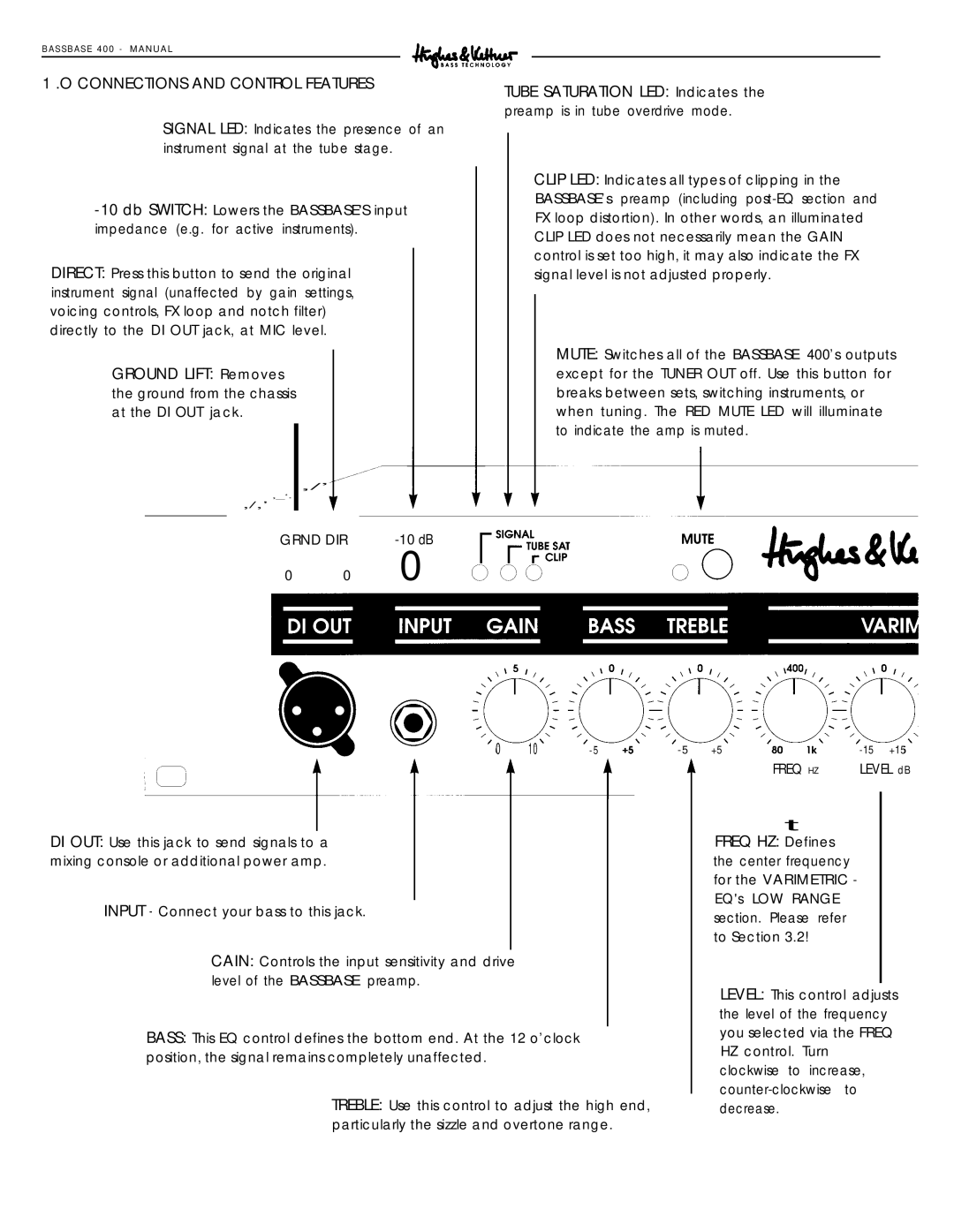
BASSBASE 400 - MANUAL
1 .O CONNECTIONS AND CONTROL FEATURES
SIGNAL LED: Indicates the presence of an instrument signal at the tube stage.
DIRECT: Press this button to send the original instrument signal (unaffected by gain settings, voicing controls, FX loop and notch filter) directly to the DI OUT jack, at MIC level.
GROUND LIFT: Removes the ground from the chassis at the DI OUT jack.
I,/’ ,_‘.
,/,’
TUBE SATURATION LED: Indicates the preamp is in tube overdrive mode.
CLIP LED: Indicates all types of clipping in the BASSBASE’s preamp (including
MUTE: Switches all of the BASSBASE 400’s outputs except for the TUNER OUT off. Use this button for breaks between sets, switching instruments, or when tuning. The RED MUTE LED will illuminate to indicate the amp is muted.
GRND DIR | ||
0 | 0 | 0 |
0 | 10 |
DI OUT: Use this jack to send signals to a mixing console or additional power amp.
INPUT - Connect your bass to this jack.
CAIN: Controls the input sensitivity and drive level of the BASSBASE preamp.
BASS: This EQ control defines the bottom end. At the 12 o’clock position, the signal remains completely unaffected.
TREBLE: Use this control to adjust the high end, particularly the sizzle and overtone range.
+5 | |
FREQ HZ | LEVEL dB |
t
FREQ HZ: Defines the center frequency for the VARIMETRIC - EQ's LOW RANGE section. Please refer to Section 3.2!
LEVEL: This control adjusts the level of the frequency you selected via the FREQ HZ control. Turn clockwise to increase,
